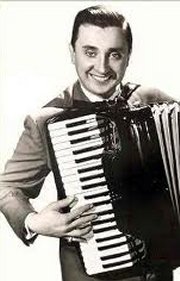
Frankie Yankovic
RETURN TO INDEX |
U.S. Army


 |
American Grammy
Award-winning polka musician. Known as "America's Polka King,"
Yankovic was the premier artist to play in the Slovenian style during a
long and successful career. For popularity, longevity, records
sales, radio airplay and TV appearances, Frank Yankovic was the
undisputed "Polka King" for decades. He had appeared on the
Lawrence Welk Show as well as
The Tonight Show Starring Johnny Carson. The state of
Wisconsin adopted the 'Polka' as its official dance, with the
encouragement of Yankovic.
Served in WW2. Enlisted in the armed forces in 1943, and cut
numerous (believed to be 28 'sides') 78 rpm records while on leave,
prior to his departure for Europe. He fought in the
Battle of the
Bulge, where a severe case of frostbite nearly resulted in the
amputation of his hands and feet; fortunately, he was able to beat the
gangrene before that became necessary, and was awarded a Purple Heart.
The doctors urged him to have his fingers amputated, but he refused,
since that would mean he would not be able to play the accordion. |
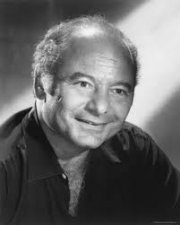
Burt Young
RETURN TO INDEX |
U.S. Marine Corps |
American actor, painter, and
author. He is best-known for his Academy Award-nominated role as
Sylvester Stallone's brother-in-law and friend Paulie in the
Rocky film series. He has played similar roles in
Chinatown,
Convoy, Back
to School,
The
Pope of Greenwich Village,
Once
Upon a Time in America,
Last Exit
to Brooklyn,
Downtown:
A Street Tale, and even a brutal and darker role in
Amityville II: The Possession. Young has also appeared in many
television programs, including
The Rockford
Files, Baretta,
Law & Order,
Walker,
Texas Ranger,
M*A*S*H, guest-starred in a
Miami Vice
episode, and made an appearance on
The Sopranos as
Bobby Baccalieri's father.
Served from 1957 to 1959. |
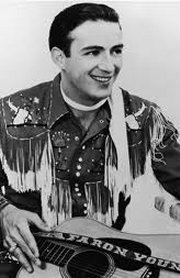
Faron Young
RETURN TO INDEX |
U.S. Army
 |
American country music
singer and songwriter from the early 1950s into the mid-1980s and one of
its most colorful stars. Hits including
If You Ain't Lovin' (You Ain't Livin') and
Live Fast, Love Hard, Die Young marked him as a honky tonk singer in
sound and personal style; and his chart-topping singles
Hello Walls and
It's
Four in the Morning showed his versatility as a vocalist.
Known as the Hillbilly Heartthrob, and following a movie role, the
Singing Sheriff, Young's singles reliably charted for more than 30
years. He committed suicide in 1996. Young is a member of
the Country Music Hall of Fame.
Served during the Korean War. Drafted in 1952, had a hit song on
the Billboard country charts while he was in basic training. It
peaked at No. 2, and the U.S. Army Band took the young singer to replace
Eddie Fisher on tours, just as "If You Ain’t Lovin’" was hitting the
charts. He was discharged in November 1954. |
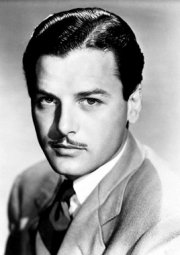
Gig Young
RETURN TO INDEX |
U.S. Coast Guard
 |
American film, stage, and
television actor. In 1955, Young became the host of Warner Bros.
Presents, an umbrella title for three television series (Casablanca,
King's Row, and
Cheyenne) that aired during the 1955 to 1956 season on ABC
Television. Later, he starred on the 1964 to 1965 NBC series
The Rogues. Young won the Academy Award for his role as Rocky,
the dance marathon emcee and promoter in the 1969 film
They Shoot Horses, Don't They?
Served in WW2. Joined in 1941 where he served as a pharmacist's
mate in the Pacific Theater until the end of the war.
|
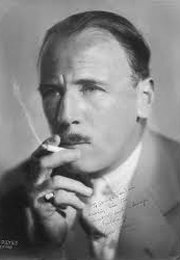
Roland Young
RETURN TO INDEX |
U.S. Army
 |
English-American actor in film,
broadway, and television. Became a U.S. citizen in 1918. He
made his first stage appearance in London's West End in Find the Woman
in 1908, and in 1912 he made his Broadway debut in
Hindle Wakes. He then appeared in two comedies, Good Gracious
Annabelle! (1916) and A Successful Calamity (1917). He made his
film debut in the 1922 silent film
Sherlock Holmes. Young made his talkie debut in
The Unholy Night (1929). He appeared in The Pagan Lady (1932),
A Woman Commands (1932), and Lovers Courageous (1932). Among his
other films of this period, were
Ruggles of Red Gap (1935),
David Copperfield (1935) and
The Man Who Could Work Miracles (1936). In 1937, he achieved
one of the most important successes of his career in the film
Topper. The film was one of the most successful films of the
year, and for his comedic performance, Young received an Academy Award
for Best Supporting Actor nomination. He also appeared in
The Young in Heart (1938), and the first of the Topper sequels,
Topper Takes a Trip (1939). He achieved another success as
Katharine Hepburn's uncle in
The Philadelphia Story (1940). His last starring role was in
the final installment of the Topper series, Topper Returns in 1941.
In the 1950s, Young appeared on several episodic television series,
including
Lux Video Theatre,
Studio One,
Pulitzer Prize Playhouse and
The Chevrolet Tele-Theatre. Young has two stars on the
Hollywood Walk of Fame, one for motion picture at 6523 Hollywood Blvd.
and another for television at 6315 Hollywood Blvd.
Served in WW1. |
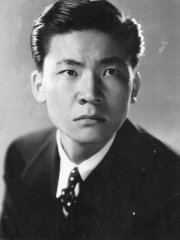
Victor Sen Yung
RETURN TO INDEX |
U.S. Army Air Forces
 |
American character actor.
Usually cast in nothing-special Asian stereotypes, sometimes villainous,
in war-era films, parts in such movies as
The Letter (1940),
Secret Agent of Japan (1942),
Little Tokyo, U.S.A.
(1942), Moontide
(1942), Across the
Pacific (1942),
Manila Calling (1942),
China (1943) and
Night Plane from
Chungking (1943). He played Jimmy, Charlie
Chans' number Two son who would often overestimate his abilities as a
detective. Some of his slightly more prominent roles
include those in Woman on
the Run (1950),
Forbidden (1953),
Target Hong Kong (1953), and
Trader Tom of the China
Seas (1954). His last film appearance was in
Sam Marlow, Private Eye
(1980). He is probably best remembered as Hop Sing, the cook on
the long-running television series
Bonanza,
appearing in 102 episodes between 1959 and 1973.
Served in WW2 as a Captain of Intelligence. |
|

